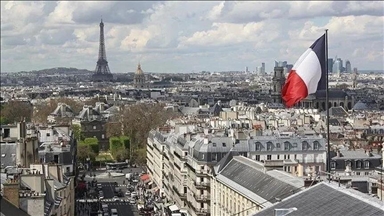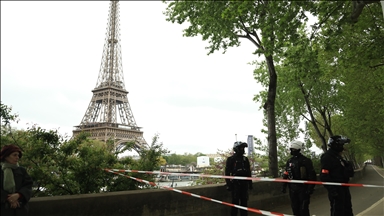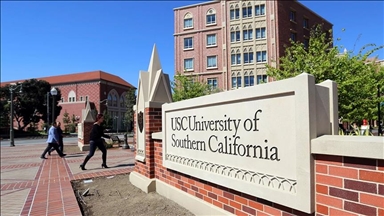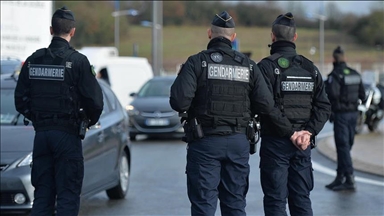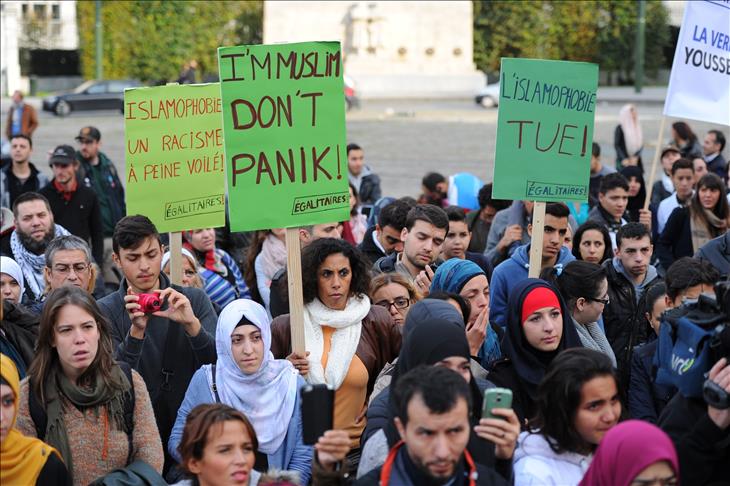
WASHINGTON
Freedom of speech and its limits should be balanced with respect to moral values within a community to prevent alienation of a group and the rise of radicalism, say American Muslim leaders.
Since the deadly attack on the Charlie Hebdo satirical magazine in Paris, several issues have been debated, such as the radicalization of Muslim communities in Europe and freedom of speech and its limits.
Three American Muslim opinion leaders emphasize that freedom of speech has to be ensured and protected but it should not be exploited to insult any faith or belief system.
"There should be a limit but the limit should not be because it will provoke violence, it should be on what a society decides to be the moral limits of the speech," said Dalia Mogahed, Executive Director of the Gallup Center for Muslim Studies, a non-partisan research center based in Washington.
She condemned the attacks in Paris noting that such actions can never be justified and accepted under the banner of Islam.
Freedom of speech is ensured in Islam, and violence against someone for what he said is not justifiable in Islam, says Nihad Awad, Executive Director of the Council on
"The Holy Quran commanded the Prophet Muhammad to be patient at the face humiliations against himself," Awad said.
He added, however, each individual should define the border of his or her freedom of speech rather than having a limit being imposed from outside.
Radwan Masmoudi, president of the Center for the Study of Islam and Democracy, a Washington-based think tank dedicated to studying the relationship between Islam and democracy, agreed with Awad.
"The attack on the cartoonists bothered me more than the cartoons of the Prophet they drew," Masmoudi
“Permission to insult a religion or a religious group" under the cover of free speech is "wrong" as it causes hatred among the communities of different faith.
Away from the discussion of free
Mogahed, who also served
She contends the attacks had an ulterior motive.
"I see it as a calculated attempt to provoke European society to act in a much worse way against Muslims," she said, which indirectly serve the discourse of the terror groups.
Muslims grievances allow for "a greater psychological space" for terrorists to spread their ideologies among the Muslim community, she said.
"When you provoke Europe to commit hate crimes against Muslims, then you alienate all Muslims rather than the terrorists alone," she said.
Following the Paris attacks, several European mosques have been attacked by racist and anti-Muslim groups. These attacks have the potential to radicalize some Muslims, as Mogahed points out.
Masmoudi agreed with Mogahed that if the greater Muslim community is held responsible for the attacks,
He said 6 million Arabs and Muslims living in France alone have been alienated from French society and the insult to their faith or ethnicity, has contributed to their alienation and has given rise to radical groups among them.
The opinion leaders also expressed concern about a perceived double standard in the way free speech is applied.
Maurice Sinet, known to the world as Siné, wrote
His column followed the engagement of Jean Sarkozy, the son of former French President Nicolas Sarkozy, to Jessica Sebaoun-Darty, the Jewish heiress of a major consumer electronics company.
“He’ll go a long way in life, that little
The column was considered anti-Semitic and Siné was fired because he refused to apologize for the column.
"France has a long way to catch up with the enlightened world in terms of what free speech means," Awad said.
He said the free speech criteria should be applied to all, otherwise, if it is selectively applied to certain groups then the free speech practice has some serious flaws.
"In France they say free speech has no limit but they have people and journalists in jail for expressing certain views or certain opinions," Masmoudi said, referring to a criminal investigation into a French comedian who posted on Facebook, “Tonight, as far as I’m concerned, I feel like Charlie Coulibaly.”
The comedian faces possible charges of “defending terrorism," for the post.
Anadolu Agency website contains only a portion of the news stories offered to subscribers in the AA News Broadcasting System (HAS), and in summarized form. Please contact us for subscription options.



